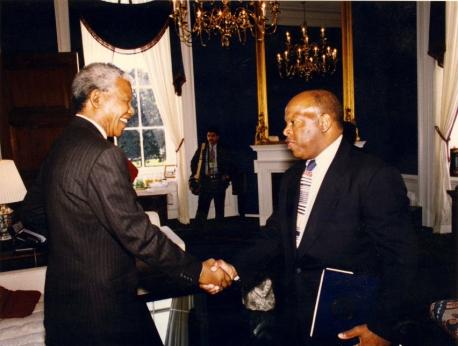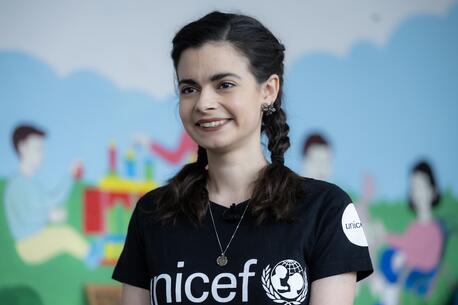
The Power of Remembrance: Black History Month 2021
Paying tribute to Black History Month and the historic role that individuals and communities of African descent have played in the U.S.
The Diaspora and Multicultural Partnerships team at UNICEF USA is pleased to pay tribute to Black History Month (BHM) and the historic role that individuals and communities of African descent have played in the U.S. and throughout the world. This formal recognition originated in 1926, by Dr. Carter G. Woodson, one of Harvard’s first Black PhDs, in order to promote awareness about the legacy of African Americans, and to celebrate Black culture, traditions and achievements. Dr. Woodson was the first historian to study the African Diaspora.
Delving into the history of African Americans during BHM has become an important validation of the ‘power of remembrance’ and a way to pay homage to influential historical figures and events pertaining to the Black community. BHM acknowledges the critical nature of linkages and connections, especially with respect to the Black community’s ancestral ties to different geographical areas within the Diaspora. The impetus for its creation was the fact that contributions of African Americans were often excluded altogether from public discourse, largely relegated to passive roles and/or otherwise misrepresented, despite their substantial place in history.
Black History Month was created as an opportunity to recognize the African heritage shared across large swaths of people who find themselves dispersed throughout the world; this separation serves as the vital context to understanding both the struggles and advancements of African Americans in the Diaspora. The BHM celebration promotes an inclusive history tied together with threads that act as connective tissue for millions of individuals who share African ancestry.
Dr. Martin Luther King, Jr. expanded on this theme of connectivity when he wrote about “the inescapable network of mutuality that ties us all together.” Another prominent African American, the late Congressman John Lewis, was also known to express a strong sense of community, along with conviction for social causes that often reached beyond the borders of the United States. His impassioned commitment included support for Nelson Mandela and the anti-apartheid movement in South Africa. The chronicles and exhortations of African American social justice champions such as King and Lewis are typical of those honored during February each year.
UNICEF USA is committed to representing the diverse interests of Diaspora communities in support of UNICEF’s global work. Diaspora partners provide illustrative examples of how the African American community has extended its support to populations throughout the developing world, mainly in Africa and the Caribbean. Prominent African American organizations such as The Links Incorporated and Delta Sigma Theta Sorority, Inc., through their U.S.-based members, have made a significant difference to children in the African Diaspora by supporting the work of UNICEF as well as through their other outreach. The programming these groups sponsor ultimately ‘promotes remembrance’ by acknowledging a special kinship to countries in the developing world.
Every year, Black History Month inspires discussion about the legacy of the African American community. It also works to foster the activism that draws from lessons of African American history. In sum, the ‘power of remembrance’ engenders social justice endeavors that contribute to the Black Lives Matter Movement’s clarion call for criminal justice reform; that heighten awareness about systemic health inequities in response to the global pandemic’s disproportionate impact on communities of color; and that build the groundswell related to decades of voting rights reform that helped pave the way for the United States’ first Black President and, most recently, the first female Black Vice President.
Black History Month acknowledges the stories of a multitude of African American champions as social justice connectors, who have helped raise awareness about the need to meaningfully extend their community’s reach to the rest of the world. These interconnections augur well for rights-based inclusive programs that can help children in the Diaspora survive and thrive, through sustainable, collaborative partnerships.
If you would like to learn more, please contact:
Anne-Marea Griffin
Senior Director, Diaspora Partnerships
UNICEF USA
amgriffin@unicefusa.org
Top Photo: Representative John Lewis and Nelson Mandela. © John Lewis


